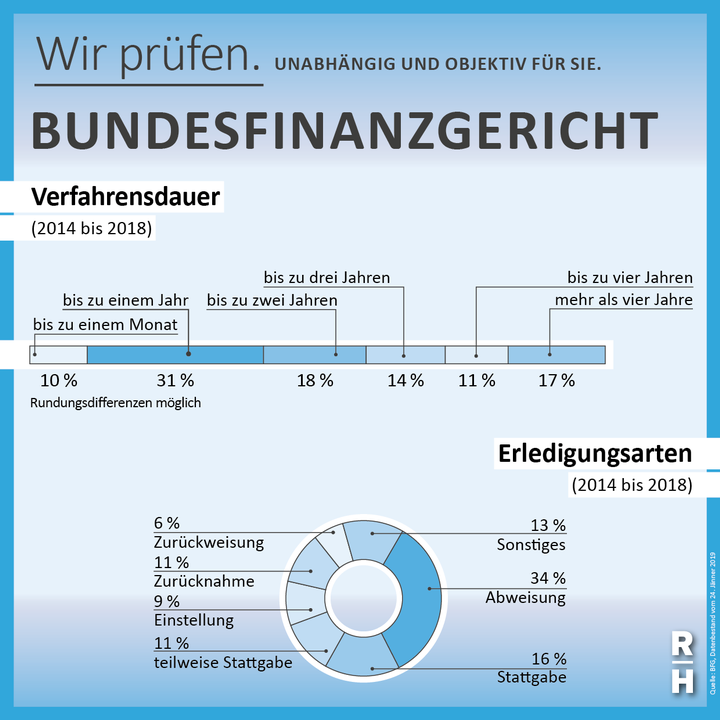Considerable case file backlogs at the Federal Fiscal Court

The auditors of the Austrian Court of Audit (ACA) discovered large backlogs of case files at the Federal Fiscal Court. In end-2018, for example, a total of 30,343 cases had not been closed, notably in the area of taxes and allowances. In its report published today, the ACA furthermore critically points to the long duration of proceedings. Long proceedings can result in the fact that outstanding amounts cease to be recoverable – the collection of about two billion euros was suspended in 2018.
In 2014, the tasks of the Independent Fiscal Tribunal were assigned to the newly established Federal Fiscal Court. The Court decides on appeals in cases at law, such as matters related to public charges and fiscal criminal law. The legislator’s aim was to enhance legal certainty through the Federal Fiscal Court, such as via an enhanced unification of jurisdiction. Furthermore, appeal proceedings were to be accelerated. The ACA critically highlights that the Federal Fiscal Court failed to fully achieve the objectives.
No positive trend discernible as regards the clearing of backlogs
In 2018, for example, the Federal Fiscal Court had closed a total of 13,308 cases. In contrast, 31,500 cases had been carried over from the preceding year, which were complemented by 12,151 new cases. The Federal Fiscal Court would need more than two years just to clear the backlog existing at the end of 2018. In view of the development of the previous years, a positive trend towards the clearing of backlogs was not discernible in the course of the audit.
The ACA points to the comparatively low level of administrative support available for judges at the Federal Fiscal Court. While four judges at the Federal Fiscal Court are supported by one administrative staff member, one and a half administrative staff members are available for one judge at the Federal Administrative Court.
The ACA recommends to the Federal Fiscal Court to take effective measures – for example by relieving judges of administrative duties – to clear the backlogs of work that have existed for years, especially in the area of taxes and allowances, and to prevent new backlogs from arising.
Increased duration of proceedings
The ACA points to the considerably high proportion of appeal procedures with a duration of more than three years, equalling 28 per cent. 17 per cent of the appeal proceedings lasted even longer than four years. The ACA furthermore criticizes that the duration of proceedings at the Federal Fiscal Court increased compared to its predecessor organization, the Independent Fiscal Tribunal.
On a side note, the Federal Fiscal Court dismissed more than one third of the submissions. Consequently, it confirmed the correctness of the decisions issued by the tax and customs authorities. In the area of fiscal criminal law, more than a quarter of the proceedings was closed with a partial approval.
The audited period essentially spanned the years from 2012 through 2018. Consequently, the audit concerned both the Federal Fiscal Court as well as its predecessor, the Independent Fiscal Tribunal. Measures related to judicial independence were naturally not the subject of the audit. The ACA also carried out audit procedures at the Federal Ministry of Finance as well as at tax and customs offices.
- pdf Datei:
- 2,012.9 KB


